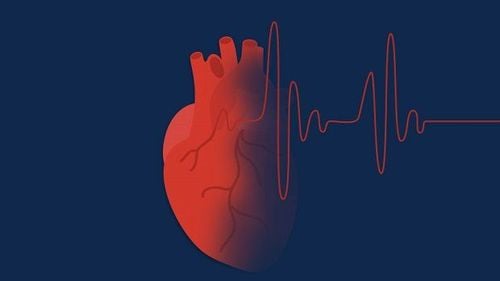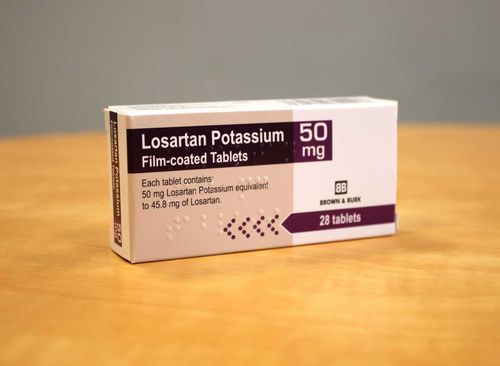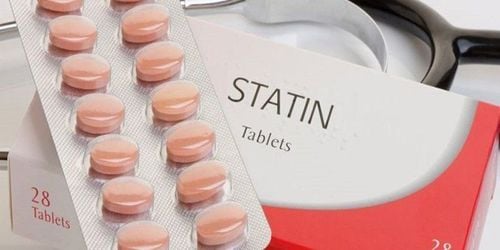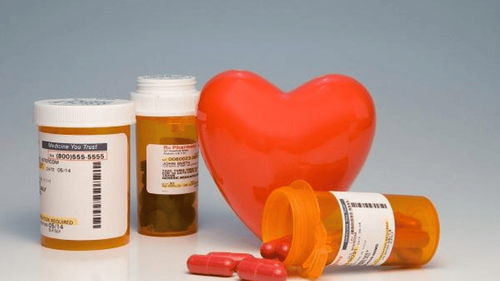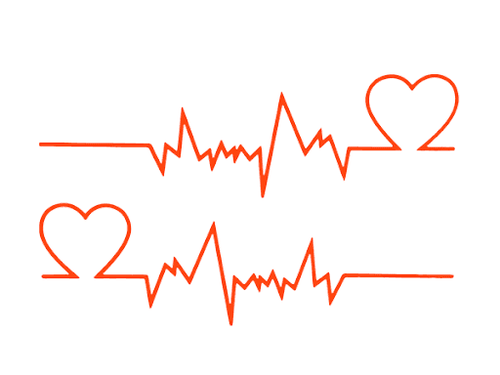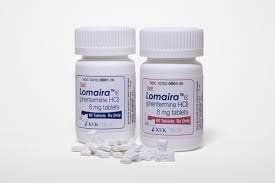This is an automatically translated article.
Your heart rate changes frequently due to factors ranging from your activity level to the temperature of the surrounding air. A heart attack can also slow or speed up your heart rate. Likewise, your blood pressure during a heart attack may increase or decrease depending on factors such as the above. In some cases, a person's resting heart rate may signal a higher risk of heart attack.
1. How does a heart attack affect the heart rate?
Your heart rate is the number of times your heart beats per minute. The normal or healthy resting heart rate of an adult is between 60 and 100 beats per minute. In general, the lower your heart rate, the more efficiently your heart pumps blood.
Exercise heart rate:
During exercise, your heart rate increases to meet your muscles' need for oxygenated blood. At rest, your heart rate slows as this need decreases. When you are sleeping, your heart rate slows down.
Heart rate during a heart attack:
During a heart attack, your heart muscle receives less blood because one or more of the arteries supplying the muscle are blocked or constricted and cannot supply enough blood or needs of the heart (the amount of oxygen the heart needs) is higher than the supply of the heart (the amount of oxygen the heart has).
Your heart rate is not always predictable.
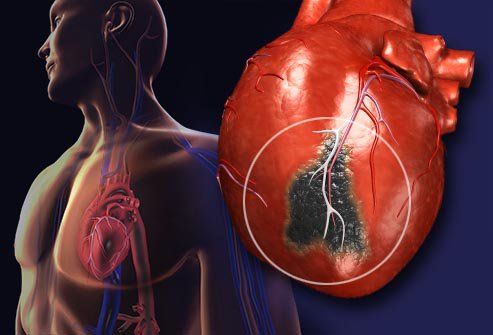
Trong cơn đau tim, cơ tim của bạn nhận được ít máu hơn.
2. Some medications can slow your heart rate
If you are taking medication that slows your heart rate, such as beta-blockers for heart disease, your heart rate may remain slow during a heart attack. If you have a type of heart rhythm disorder (arrhythmia) called bradycardia, which makes your heart beat more often than usual, a heart attack probably won't raise your heart rate. your.
There are several forms of heart attack that can lead to an abnormally slow heart rate because they affect the electrical tissue cells (pacemakers) of the heart.
On the other hand, if you have tachycardia, which makes your heart always or often beat faster than normal, your heart rate will likely continue to increase when the heart attack occurs. Some forms of heart attack can also cause the heart rate to increase.
If you have certain other conditions that cause your heart to beat faster, such as sepsis or an infection, they may be putting stress on your heart rather than being the result of a blockage in blood flow.
Many people live with tachycardia and have no other symptoms or complications. However, if your heart often beats fast at rest, you should see a cardiologist as soon as possible.
3. Heart attack symptoms
Tachycardia is one of many possible symptoms of a heart attack. However, it is often not the only sign that your heart is suffering from exhaustion. Some common heart attack symptoms include:
Chest pain ; You may feel a sharp pain, tightness, or pressure in your chest. Pain in one or both arms, chest, back, neck, and jaw. Cold sweat. Short of breath. Nausea. Feeling lightheaded. A vague sense of impending doom. If you think you or a loved one may be having a heart attack, call 911 immediately. The earlier you are diagnosed and treated, the less damage your heart can do. Remember to never try to drive yourself to the emergency room if you are experiencing symptoms of a heart attack.

Ra mồ hôi lạnh là một trong những triệu chứng của cơn đau tim.
4. How do different types of heart attack affect heart rate?
There are three different types of heart attack and each can affect the heart rate in different ways:
STEMI (ST segment myocardial infarction). NSTEMI (non-ST-segment elevation myocardial infarction). Coronary artery spasm. STEMI heart attack:
STEMI is a traditional form of heart attack. In STEMI, a coronary artery is completely blocked. The ST segment is the part of the heart rhythm seen on an electrocardiogram (ECG).
Heart rate with STEMI is often increased, especially if the anterior part of the heart is affected. However, it can also slow the heart rate due to:
Using beta-blocker . Damage to the conduction system (the heart muscle cells specifically tell the heart when to contract). If it involves the back of the heart. Symptoms:
Pain or discomfort in the chest. Dizziness or lightheadedness. Nausea. Short of breath. Chest palpitations. Anxiety, fainting, or loss of consciousness. NSTEMI heart attack:
NSTEMI occurs when a coronary artery becomes partially blocked. It's not as dangerous as STEMI, but it's still very serious. Heart rate in NSTEMI usually tends to decrease rather than increase when monitored on electrocardiogram.
Sometimes, if another condition in the body, such as sepsis or an arrhythmia,... causes the heart rate to increase, it can lead to a supply-demand mismatch. In which, myocardial oxygen demand increases due to tachycardia but supply is limited because of blockage in blood vessels.
Symptoms:
Pain or tightness in the chest. Pain in the neck, jaw, or back. Dizziness, sweating, nausea. Coronary vasospasm:
Coronary spasm occurs when the muscles in one or more coronary arteries suddenly spasm, narrowing the blood vessel. In this case, blood flow to the heart is restricted. Coronary vasospasm is less common than STEMI or NSTEMI.
Sometimes, the heart rate during a coronary spasm does not change or changes very little, although it can also cause tachycardia.
Symptoms:
Short-lived (in 15 minutes or less) but the chest pain can be repeated, often during sleep at night but can be so strong that it wakes you up. Nausea; sweat theft; feeling as if you might pass out.
5. Effect of a heart attack on blood pressure
Blood pressure is the force of blood pushing against the inner walls of arteries as it circulates throughout the body. During a heart attack, blood pressure also fluctuates unpredictably like the heart rate. Because blood flow in your heart is blocked and part of your heart tissue is denied oxygen-rich blood, your heart may not be able to pump as hard as it should, resulting in a drop in your blood pressure.
A heart attack can also trigger a response from the parasympathetic nervous system, causing your heart and the rest of your body to rest and not "fight" while the heart struggles to keep blood flowing. . This can also lower blood pressure.
On the contrary, the pain and stress of a heart attack can raise blood pressure.
Blood pressure medications, such as diuretics or ACE inhibitors, can keep your blood pressure low during a heart attack.
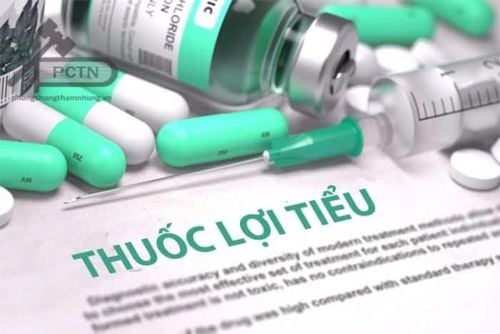
Thuốc giảm huyết áp có thể giữ cho huyết áp của bạn ở mức thấp trong cơn đau tim.
6. Heart attack risk factors and effects on heart rate during a heart attack
Risk factors for heart attack include modifiable factors, such as weight, but there are also factors beyond your control, such as age. Some of the most common conditions that increase the risk of a heart attack include:
Advanced age. Fat . Diabetes . High cholesterol. High Blood Pressure. Inflammation. Smoke. Sedentary lifestyle. Family history of heart disease. Personal history of heart disease or stroke. Poor stress control.
7. Can your heart rate reveal your heart attack risk?
Very high or very low heart rate can reveal your heart attack risk. If the average person has a continuous heart rate above 100 beats / min or less than 60 beats / min, they should quickly see a doctor to assess their heart health.
Athletes who run long distances or play other sports often have low resting heart rates and high aerobic capacity - the ability of the heart and lungs to deliver enough oxygen to the muscles. So their heart rate will usually be low.
Both of these characteristics are associated with a reduced risk of heart attack and death. Regular exercise — such as walking or running, swimming, biking, and other aerobic activities — can help lower your resting heart rate and improve your aerobic capacity.
Although resting tachycardia may be a risk factor for heart attack in certain patients, myocardial infarction is not always characterized by tachycardia. Sometimes, your heart rate may slow down during a heart attack due to a problem with the heart's electrical system. Likewise, your blood pressure can change a lot or vice versa during a heart attack. To keep your blood pressure and heart rate stable, it's important to make healthy lifestyle choices. You can also take medications to help improve your heart health and reduce your risk of a serious heart attack.
To have a healthy heart, you should go to a cardiologist at reputable facilities to accurately assess your condition. Currently, Vinmec Health System is implementing Cardiovascular Screening Packages including: High Blood Pressure Checkup Package, Coronary Heart Disease Checkup Package, Heart Failure Checkup Package. With modern and advanced equipment; a team of experienced doctors and experts; luxury infrastructure; Vinmec is a reliable address for you to choose to visit.
Please dial HOTLINE for more information or register for an appointment HERE. Download MyVinmec app to make appointments faster and to manage your bookings easily.
Reference article: healthline.com




